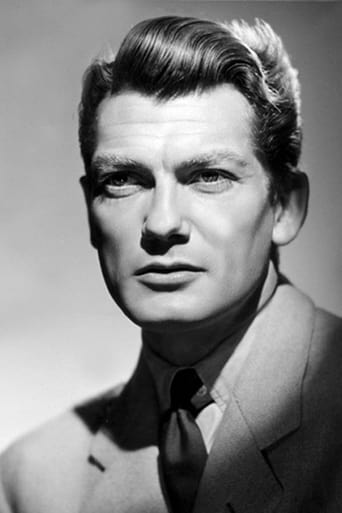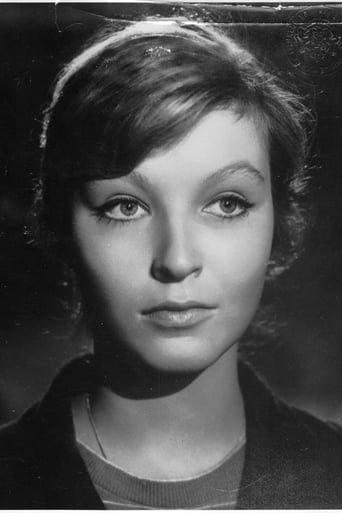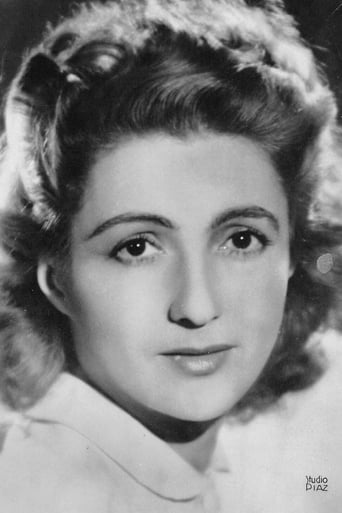Artivels
Undescribable Perfection
Pacionsbo
Absolutely Fantastic
Chirphymium
It's entirely possible that sending the audience out feeling lousy was intentional
Kien Navarro
Exactly the movie you think it is, but not the movie you want it to be.
Kirpianuscus
...but it is not easy to discover that. the respect for the novel of Madame La Fayete, the feeling to be in a wax museum, the rhythm and the style, the dialogues and the performances are obstacles for clearly see the special beauty of a film who use in inspired manner a seductive text. it is a great love story, not very comfortable / coherent for our time but great for its delicate flavor. sure, it is not difficult to discover it only as a film with Marina Vlady and Jean Marais. but it is unfair. because the grace of performances, the admirable costumes and atmosphere are true virtues of a film who explores the ways of a classic genre. and the mark of Cocteau is one of its basic virtue.
dlee2012
Madame de La Fayette's early proto-novel, the Princesse de Cleves, is well-served by this lush film adaptation. As the other reviewer notes, however, it was released at the wrong time and seems somewhat staid and stilted compared to the nouvelle vague offerings that were produced by the likes of Godard and Truffaut in the same year.However, unlike most literary adaptations, there is not an overwhelming sense of staginess here. Partly this is due to the way in which the bright colours and processional scenes capture the pageantry of the French court. The costumes and settings also vividly bring the film to life, and avoid giving the feeling that one is looking at a sound stage.The characters are somewhat estranged but this emphasises the unreal quality of courtly life.Throughout the film, there is a hint of the darkness to come. Henry the Second's death is well-staged even when one knows in advance how he met his end. Indeed, it is quite a bloody and disturbing scene, especially for the era in which it was produced.Of course, it is hard to watch this film dispassionately when one knows that, in real life, Catherine de Medici was to later commit one of the most horrendous acts in history, the Saint Bartholomew's Day Massacre of the Huguenots and that the Dauphine, Mary Stuart, would also attempt to undermine Protestantism, albeit far less effectively, in the British Isles. One is, thus, far more inclined to read against the grain of what Lafayette intended with these characters. Courtly life is a vicious world of plotting and one wants to read them from the viewpoint of the commoner who, of course, has no voice or presence at all in this courtly romance.In any event, the film stays largely true to Lafayette's novel and includes her pioneering work into depicting the psychology of her characters. Whereas the novel is thin on detailed descriptions, the court here is full of colour and movement, creating the vivid Renaissance world.The mist at the end foreshadows the end of the Princesse's life and perhaps a hint that the world depicted in the novel will come to an end of sorts very soon with the religious persecution of the Huguenots and the brutality of the Catherine de Medici-dominated regency period, not to mention Mary Stuart's downfall and execution.The cinematography throughout the film creates the sense that the audience are unobtrusive observers at this ancient court, viewing the romance between the Princesse de Cleves and her lover and spectacle of the jousts and the intrigue of the plotting but never truly becoming part of it. It is their world, not ours.Ultimately, this is a faithful adaptation that fleshes out Lafayette's sparse details and creates a rich and vivid world. It was filmed somewhat conservatively but is well-acted and the cinematography, music and action scenes all add colour, depth and drama to the story's historical backdrop. As the other reviewer noted, perhaps it was time this film was re-evaluated. It will never be regarded as a masterpiece but it does not deserve to be neglected as it has been either, so a rehabilitation of sorts is in order.
dbdumonteil
"La Princesse de Cleves" was released at the wrong time.The reasons are obvious:1. It was the heyday of the nouvelle vague and Jean Delannoy was a laughing stock for all these directors."He does not live his movies" was what M.Godard used to say.I'm not sure M.Godard used to live His.2.The mainstream audience mistook the movie for a swashbuckler entertaining yarn , a genre which was very popular in France at the time .It was after all a costume movie and Jean Marais was par excellence the sword hero.So nobody was satisfied and the film died commercial and artistic death.It should be restored to favor now,because ,simply, it's really a beautiful movie which has stood the test of time quite well,as well as ,say, Jacques Rivette's "la religieuse" .There's a contrast ,in "la princesse de Clèves" between the brightness and the beauty of the cinematography -several sequences are stunning:the first one,the magnificent ball ,one of the most entrancing openin scene ever filmed and the last one,when the duc de Nemours comes to the lodge in a misty morning ,is awesome- and the screenplay,which is very austere,and might put off some viewers .Madame de la Fayette 's novel tells a story of passion,but a passion which struggles with reason and duty.Some people said that Marina Vlady's performance was remote and that her feelings could not reach us:that's partly true.But It 's a woman from the sixteenth century depicted by another woman from the seventeenth!Jean Cocteau's adaptation,if he wanted to be faithful to De la Fayette's work had to invent another psychology ,another language (the dialogue is very precious and literary).Jean Delannoy 's directing,icily impersonal,is very effective here.The cast and credits,at the beginning , fit the movie like a glove.We see the characters as some Madame Tussaud statues.Cocteau's favorite actor,Jean Marais gives a wonderful performance:his prince de Clèves is oozing with suffering and longing to be loved.His commitment to his role is extraordinary.This was the great thespian's farewell to youth as well as his last great part,with the eventual exception of Jacques Demy's "peau d'âne"(1970).The ending slightly differs from the novel-Madame de La Fayette simply says that Madame De Clèves 's life was rather short-but Cocteau found an adequate equivalent.



